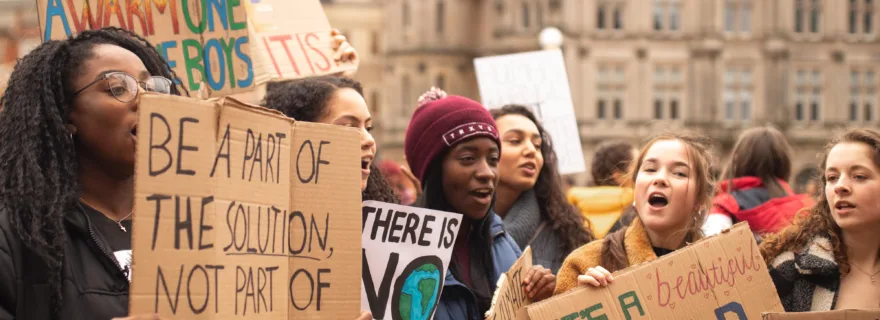Sacchi et al. v. Argentina et al.: A revolutionary climate case before the UN Child Rights Committee declared inadmissible
The UN Committee on the Rights of the Child declares its first climate-related petition inadmissible for non-exhaustion of domestic remedies but establishes States extra-territorial obligations concerning climate change.
On the 23rd of September 2019, in Sacchi et al. v Argentina et al., sixteen child petitioners across twelve countries filed the first climate-related petition before the UN Committee on the Rights of the Child. The children alleged that each of the five respondent States - Germany, France, Turkey, Brazil and Argentina - significantly contributed to the climate crisis causing extra-territorial, transboundary, and intergenerational harm. The children claimed that these States failed to take the necessary preventive measures to protect and fulfil their rights to life (Article 6), health (Article 24), and culture (Article 30) under the United Nations Convention on the Rights of the Child (CRC). This case raised the quintessential question of whether the CRC’s legal framework can provide children with a remedy to the all-encompassing challenges of climate change.
Between May and September 2021, the Committee held five oral hearings between the representatives of both sides. The children were heard directly for the first time under the Optional Protocol to the CRC on a communications procedure (CRC OP3). The Committee published its long-awaited decision on the 11th of October 2021, declaring the petition inadmissible on the grounds that the children had failed to exhaust all domestic remedies in the five respondent States. Consequently, the Committee could not further examine the merits of this case or adjudicate whether the respondents had violated their obligations under the CRC.
In a more positive vein for the petitioners, the Committee held, the first such ruling issued by an international body, that States can be held responsible for the negative impact of their carbon emissions on the rights of children within their territory and those located extra-territorially. Committee member Ann Skelton held that “the collective nature of the causes of climate change must not absolve a State from its individual responsibility”. The Committee determined that States had effective control over the emissions they were producing and that a sufficient causal link had been established between the harm alleged by the petitioners and the acts or omissions by the respondents.
This case could not have come at a more crucial time for children’s rights and climate change as the world has been witnessing an unprecedented increase in average global temperatures since pre-industrial times. This has fostered the spread of highly infectious diseases, caused heatwaves, forest fires, extreme flooding, sea-level rise, ocean acidification, air pollution, water and food shortages and much more. Following the Intergovernmental Panel on Climate Change’s Sixth Assessment Report, ‘Climate Change 2021: The Physical Science Basis’ published in August 2021, it is clear that the climate crisis is intensifying. The report finds that unless there are immediate, widespread and rapid reductions in carbon emissions, then limiting warming to close to 1.5°C or even 2°C will be impossible.
A case note on this admissibility decision will be published on the Leiden Children’s Rights Observatory.


